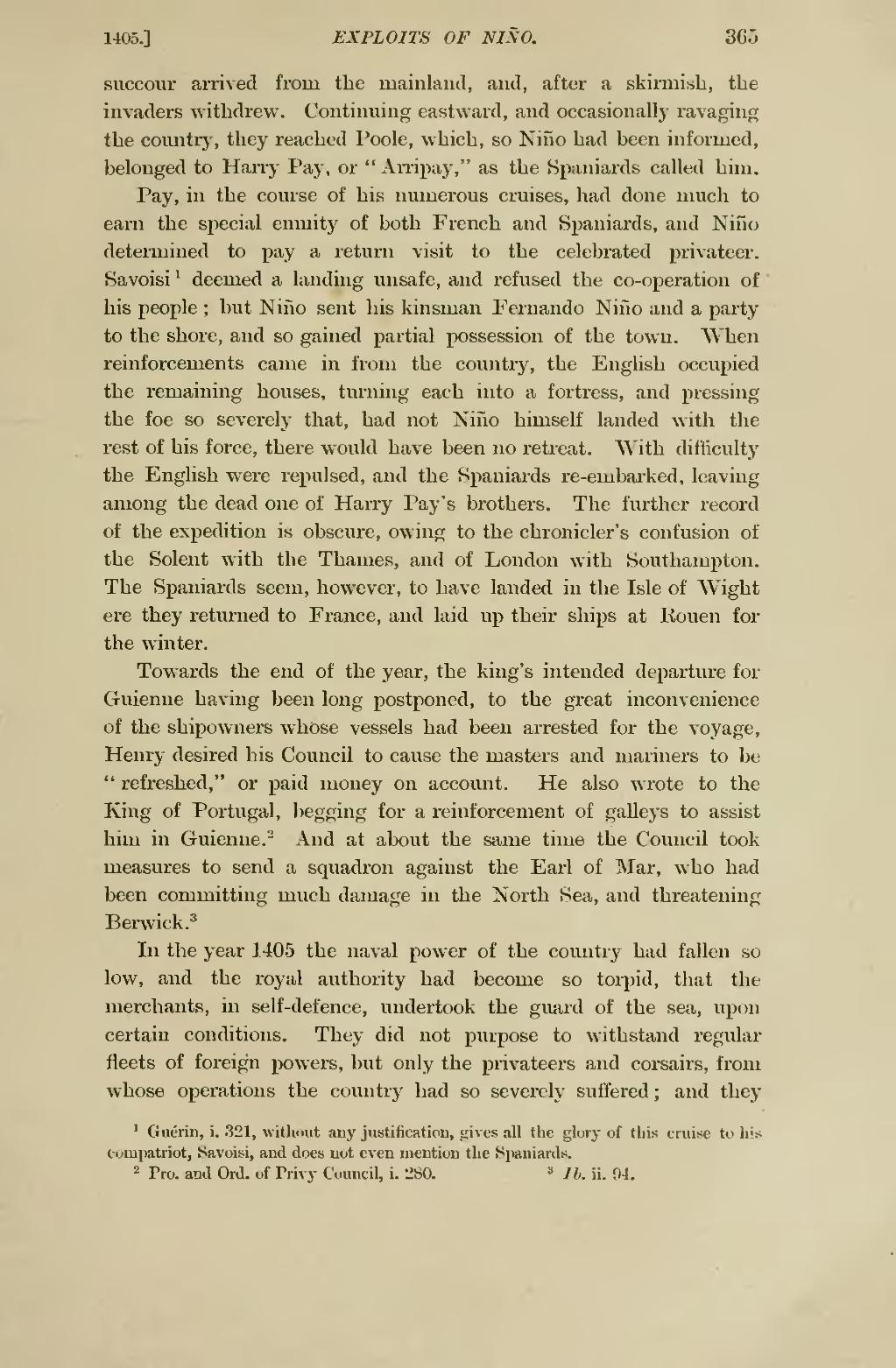succour arrived from the mainland, and, after a skirmish, the invaders withdrew. Continuing eastward, and occasionally ravaging the country, they reached Poole, which, so Niño had been informed, belonged to Harry Pay, or "Arripay," as the Spaniards called him.
Pay, in the course of his numerous cruises, had done much to earn the special enmity of both French and Spaniards, and Niño determined to pay a return visit to the celebrated privateer. Savoisi[1] deemed a landing unsafe, and refused the co-operation of his people; but Niño sent his kinsman Fernando Niño and a party to the shore, and so gained partial possession of the town. When reinforcements came in from the country, the English occupied the remaining houses, turning each into a fortress, and pressing the foe so severely that, had not Niño himself landed with the rest of his force, there would have been no retreat. With difficulty the English were repulsed, and the Spaniards re-embarked, leaving among the dead one of Harry Pay's brothers. The further record of the expedition is obscure, owing to the chronicler's confusion of the Solent with the Thames, and of London with Southampton. The Spaniards seem, however, to have landed in the Isle of Wight ere they returned to France, and laid up their ships at Rouen for the winter.
Towards the end of the year, the king's intended departure for Guienne having been long postponed, to the great inconvenience of the shipowners whose vessels had been arrested for the voyage, Henry desired his Council to cause the masters and mariners to be "refreshed," or paid money on account. He also wrote to the King of Portugal, begging for a reinforcement of galleys to assist him in Guienne.[2] And at about the same time the Council took measures to send a squadron against the Earl of Mar, who had been committing much damage in the North Sea, and threatening Berwick.[3]
In the year 1405 the naval power of the country had fallen so low, and the royal authority had become so torpid, that the merchants, in self-defence, undertook the guard of the sea, upon certain conditions. They did not purpose to withstand regular fleets of foreign powers, but only the privateers and corsairs, from whose operations the country had so severely suffered; and they

